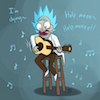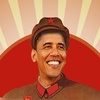 |
|  |
 |
SolveEtCoagula
Junior Member
Gender: Male
Location: St.Gallen, Switzerland |
 America's Arcane Origins America's Arcane Origins
America's Arcane Origins
By Frank Joseph
Political activists of the so-called “religious Right” in the United States never tire of preaching that their country was founded as “a Christian democracy.” But they are wrong on both counts.
When Benjamin Franklin was leaving the first Continental Congress, he was asked by one of many anxious patriots waiting outside the courthouse, “What have you given us?” Franklin replied, “A republic, if you can keep it.”
The difference might seem trivial or even non-existent to narrow-minded persons for whom democracy and dictatorship are the only conceivable forms of government. Yet, the very word, “democracy,” does not occur once in the Bill of Rights, the US Constitution, or any state constitution. It was mentioned often by America’s Founding Fathers, but invariably as a synonym for “mob rule,” and, along with obsolescent monarchy, an evil to be avoided.
Thomas Paine, the American Revolution’s most eloquent voice, summed up his colleagues’ view of democracy when he described it in his world-famous “Rights of Man” as “a species of demagoguery, wherein clever charlatans, making promises as enticing as they are impossible to fulfil, win for themselves unwarranted power and wealth, persuading gullible people to discard their liberties for a secret tyranny masquerading as public freedom.”
Particularly in the writings of Thomas Jefferson, the historic models held up for emulation did not include Greek democracy, but the Venetian and Roman republics. The difference between these examples most important to men like Paine and Jefferson was the concept of citizenship. Anyone born in a democratic state automatically becomes a citizen with all the privileges that entails, including the right to vote. In a republic, one is not born a citizen, but may only become one when he or she reaches adulthood; can demonstrate at least a fundamental grasp of the workings of their government, and is either going to school or gainfully employed.
In modern America, all that remains of these basic requirements is a restriction against voting until one’s eighteenth year. Foreigners must, in fact, pass tests proving their basic comprehension of the Constitution before becoming US citizens, which makes them more knowledgeable, discerning voters than native-born Americans, who are supposed to receive the same kind of rigorous Constitutional education, but rarely, if ever, do. In demanding at least some qualifications for citizenship, America’s Founding Fathers believed that responsible leaders could only by chosen by a competent electorate. Today, however, such notions are shunned as “elitist” in most countries described as “democratic.”
Yet more shocking to bible-beating conservatives, if they were to learn the awful truth, is that the United States was not founded by Christians, at least of the kind they would approve. Instead, that country’s constitutional republic was conceived, fought for and built almost entirely by deists. While the majority of Americans, then as now, were at least nominally Christian, most of their leaders were not. George Washington, John Hancock, Patrick Henry, Paul Revere and virtually all of their intellectual compatriots were deists. The term is not generally familiar today, but signifies a person who believes in a universal, compassionate Intelligence that made and orders Creation, manifests its will through natural law, but requires no religious dogma to be understood, only the faculty of reason with which every human is endowed.
Referring to the church of his day, Paine wrote, “The Christian theory is little else than the idolatry of the ancient mythologists, accommodated to the purposes of power and revenue... My own mind is my own church.” Like his fellow deists, who made a clear distinction between church and state, he was convinced that freedom meant being able to speak one’s mind on all subjects, religious as well as political. He did not “condemn those who believe otherwise. They have the same right to their belief as I have to mine.”
Nor were the deists anti-Christian. They concluded that Christianity had at its theological core the same mystical truth found in every genuine spiritual conception; namely, the perennial philosophy of compassion for all sentient beings as the means by which the human soul develops. This recognition, however, deeply offended mainstream Christians, who insisted their brand of faith alone was correct, all others being heretical at best or demonic at worst.
As an example of the extremes these defenders of the One True Religion went to demonstrate their piety, hob-nails initialled “T.P.” were sold by the thousands to Londoners who could walk all day on the name of Thomas Paine. His treatment in the land he had done so much to free was more harsh. When he walked through the streets of his hometown in Bordentown, New Jersey, doors and window shutters were pointedly banged shut as he passed by, while cries of “Devil!” followed him everywhere.
Modern American Christian crusaders would be even more alarmed to learn that not only was their country founded by deists, but its capitol deliberately designed as a metaphor for Freemasonry. In his profoundly researched book, The Secret Architecture of our Nation’s Capital (London: Century Books, Ltd., 1999), author David Ovason offers abundant evidence to show that Washington, D.C. was built by Freemasons who incorporated their arcane, even heretical ideas in the White House, the Washington Monument, the Library of Congress, the Post Office, the Capitol Dome, the Federal Trade Commission Building, the Federal Reserve Building, even Pennsylvania Avenue itself.
But what is, or was, Freemasonry? Like any idea or organisation that persists over time, Freemasonry deviated from its initial purpose until, in the end, it bore only slight, outward resemblance to its origins. By way of comparison with a group alleged without much real foundation to have been Freemasonry’s precursor, the Knights Templar was founded in the early 12th century, ostensibly for guarding pilgrim routes to Jerusalem with a few soldiers sworn to poverty and abstinence, but grew to become a virtually autonomous army richly equipped and armed, finally blossoming into an economic entity so potent it called down on itself the murderous envy of a French king.
So too, Freemasonry began in 1717 as a fraternity dedicated to humanitarian, deistic principles for Englishmen unhappy with the royal powers-that-be, and so were forced to operate with discretion. By the time early Americans were ready to part ways with the Mother Country, Freemasonry had spread to their shores and was embraced by many revolutionaries as an expression of opposition to everything British, including the Church of England. The secret order continued to grow in membership and prestige, until it was infiltrated and perverted from its high-minded ideals by Spartacus Weishaupt, a demented power-freak who wanted a respectable vehicle for subversion and insurrection. Separated by a vast ocean from the facts, even Thomas Jefferson was fooled by Weishaupt’s duplicity.
Henceforward, the “Free and Accepted Masons” were lumped together with Communists as the secretive enemies of Western Civilisation, and outlawed in most European countries. Even in the United States, though they were never banned, the Freemasons were under suspicion by the Federal Bureau of Investigation for many years, and condemned by several congressmen. Thus criminalised or under suspicion, their popularity went into a long decline, until today their once numerous, now largely abandoned lodge buildings, some still bearing masonic emblems, testify to an aging, dwindling following. It is wrong, therefore, to parallel the Freemason George Washington, for example, with the likes of Adam Weishaupt, anymore than it is to equate George Washington with George Bush.
“The very struggle for independence seems to have been directed by the Masonic brotherhood,” Ovason writes, “and, some historians insist, had even been started by them.” Indeed, the War for Independence began in a warehouse owned by a Mason, and a majority of the revolutionaries who undertook the Boston Tea Party of 1773 were Masons. The most famous American Mason was George Washington himself, although some biographers not altogether happy with Freemasonry have tried to minimalise his association with it. In fact, however, he was the first Master of the Alexandria, Virginia lodge (Number 22) from April, 1788 until December the following year.
Continue to read:
http://www.newdawnmagazine.com/arti...%20Origins.html
 |
 Feb 2nd, 2006 10:12 PM
Feb 2nd, 2006 10:12 PM |
|
|
|  |
 |
Bardock42
Junior Member
 Gender: Unspecified
Location: With Cinderella and the 9 Dwarves |
Own thoughts are your friend.
__________________
|
 Feb 2nd, 2006 10:25 PM
Feb 2nd, 2006 10:25 PM |
|
|
|  |
 |
WanderingDroid
THE LOOSE CANNON
 Gender: Male
Location: Welfare Kingdom of California |
Umm....New Dawn Magazine is a peridoical (sp?) that deals with Conspiracy theories....
....we have an official thread for that. You're welcome to use it.
Closing
__________________
|
 Feb 3rd, 2006 12:26 AM
Feb 3rd, 2006 12:26 AM |
|
|
|  |
Forum Rules:
You may not post new threads
You may not post replies
You may not post attachments
You may not edit your posts
|
HTML code is OFF
vB code is ON
Smilies are ON
[IMG] code is ON
|
|
Text-only version |
|
|
